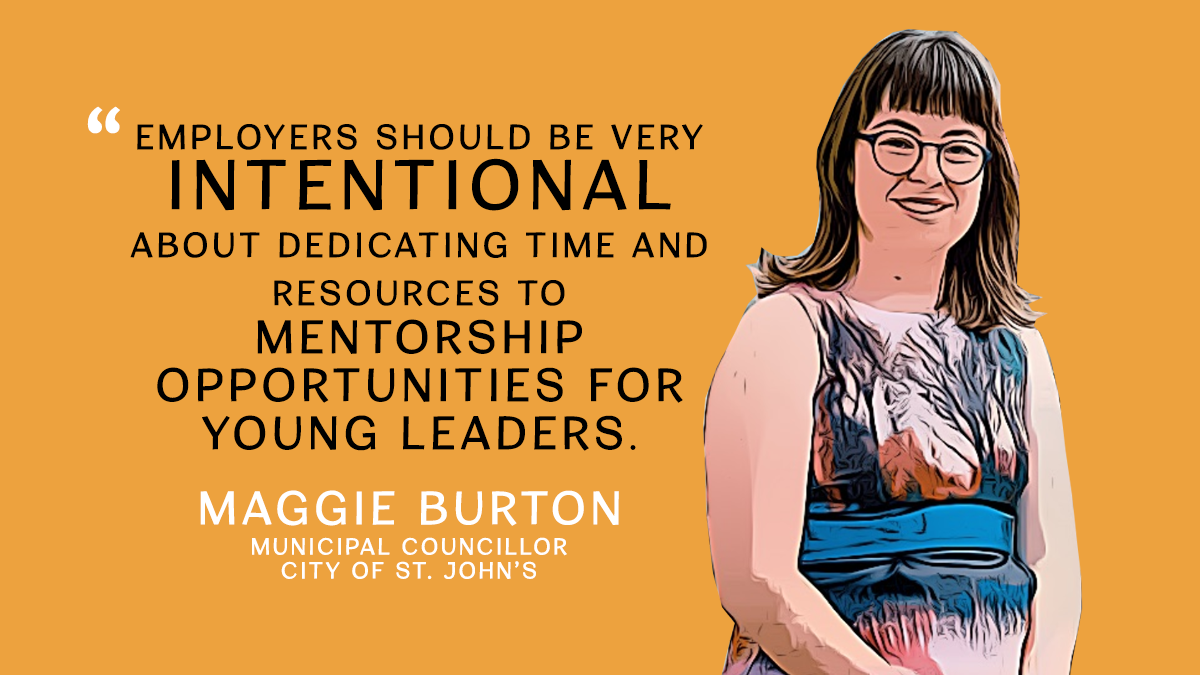How to empower: 10 young impact leaders’ best advice for employers
Why It Matters
The next generation of social impact leadership has arrived, and its members have fresh perspectives on work and organizational culture. To help employers keep up, we asked Future of Good's Young Impact Leaders for their very best piece of advice for employers looking to harness the innovation and energy young people have to offer.

As part of our series on the changing nature of work and leadership, we asked Future of Good’s Young Impact Leaders for their best advice for employers to empower young employees to do their best work—and make your organizations shine.
These leaders offered valuable insights on how to make social impact organizations’ work more inclusive, empowering, and overall more effective. We dive into 10 examples. If you’re an employer, pay attention.
LEAD BY EXAMPLE.
To build truly dedicated teams, and especially to empower young employees, senior management need to fully embody the values they expect their staff to uphold. “By doing so, staff will feel like they are part of a larger, more focused and supportive environment,” says Aneil Gokhale. “Young leaders are looking for opportunities to thrive and grow, so having the right mentors and leaders in place who are values-driven will lead to much better results.”
MAKE SURE THE BASICS ARE COVERED.
No one can change the world while worrying about meeting their basic needs. “We need all employers to commit to decent work!” says Paul Taylor. “I’ve met countless young people who are doing amazing things in their communities. Many of them struggle with access to decent work, work that provides benefits and pensions, while also protecting against poverty, food insecurity and housing precarity. Employers can support young leaders by committing to opportunities for advancement, creativity and professional development.”
MAKE COACHING AVAILABLE TO ALL.
It’s common practice for social impact organizations to give senior employees access to coaching for professional development, but younger employees are often overlooked. Thankfully, Scott Stirrett says, this could (and should) change. “As coaching has become more mainstream, there are increasingly more affordable options, which make it more cost-effective to provide these benefits to all staff.”
DON’T SHY AWAY FROM FAILURE.
Innovation requires experimentation, which inevitably includes failure. Tristan Smyth says that social impact organizations should encourage brand new ideas, even if they could fail the first time around. “Encourage self-reflexivity and embrace mistakes,” Smyth says. “The key to preventing failure is a critical and thoughtful workforce that has learned from past experiences. Too often, ideas are shut down by stick-in-the-mud management, which robs young employees of learning opportunities… Blunders, gaffes, and misunderstandings are the proving ground for future leaders.”
ENCOURAGE AUTONOMY.
Building a culture of autonomy for each employee fosters leadership and innovation. “I respect employers who are confident in my abilities to get my work done well and on time,” says Inda Intiar. “When employees get flexibility, autonomy and freedom to manage their work, it allows them space to lead impactful initiatives within or outside the organization.”
VALIDATE YOUNG LEADERS’ EXPERIENCES.
Kiana Alexander says the key is in understanding and truly valuing the potential and power of young people. “Young leaders are the healers, teachers and innovators of our time and we must acknowledge and validate young people’s lived experiences, wisdom and ideas,” Kiana says. “Ask young leaders what they need and be prepared with what you can offer; understanding that at the centre of meaningful relationships is reciprocity.”
CELEBRATE TENSION.
Incorporating diverse perspectives, something all social impact work should do, means inevitable moments of tension when ideas clash. That’s not a bad thing, says Jace Meyer. “Recognize that when young leaders challenge the status quo, that they are taking on a personal risk to be additive to your mission. Celebrate that this means they feel safe enough to bring their whole selves to the table, and offer a vantage point only they could uniquely provide. Value moments of creative tension, they are the catalyst for innovation.”
SHOW SUPPORT IN REAL WAYS.
“Have genuine faith in them, and invest in them,” says Becky Qilavvaq/Kilabuk. “It happens that today many youth, and especially Indigenous youth, are often tokenized or gravely underestimated.” Becky says employers should invest meaningfully in young leaders’ growth and offer them opportunities to do genuinely impactful work. “Investing in our youth is indeed investing in the future health of our organizations.”
BE OPEN TO LEARNING FROM YOUNG LEADERS.
All too often, exchanges of learning within organizations only go in one direction — with younger team members learning from more senior employees. Yasmine Mohamed says this is a shame: “Most importantly, employers should be learning from young leaders. Be open and interested in their feedback, and hire them to inspire positive change at your organization — not to have them completely fit in.”
WELCOME NEW PERSPECTIVES.
Understand and appreciate that young people bring new perspectives to the table that might challenge the way things have always been done, says Kris Kelly-Frere: “Abandon the idea that efficiency and growth equals success. In a volatile and uncertain world, connection and adaptation are what progress looks like. The next generation of leaders understands this. Make room at the table for their different and strategic views. Consider that you might not be able to recognize a good idea when you see it, and create space for new perspectives to build their muscles.”
